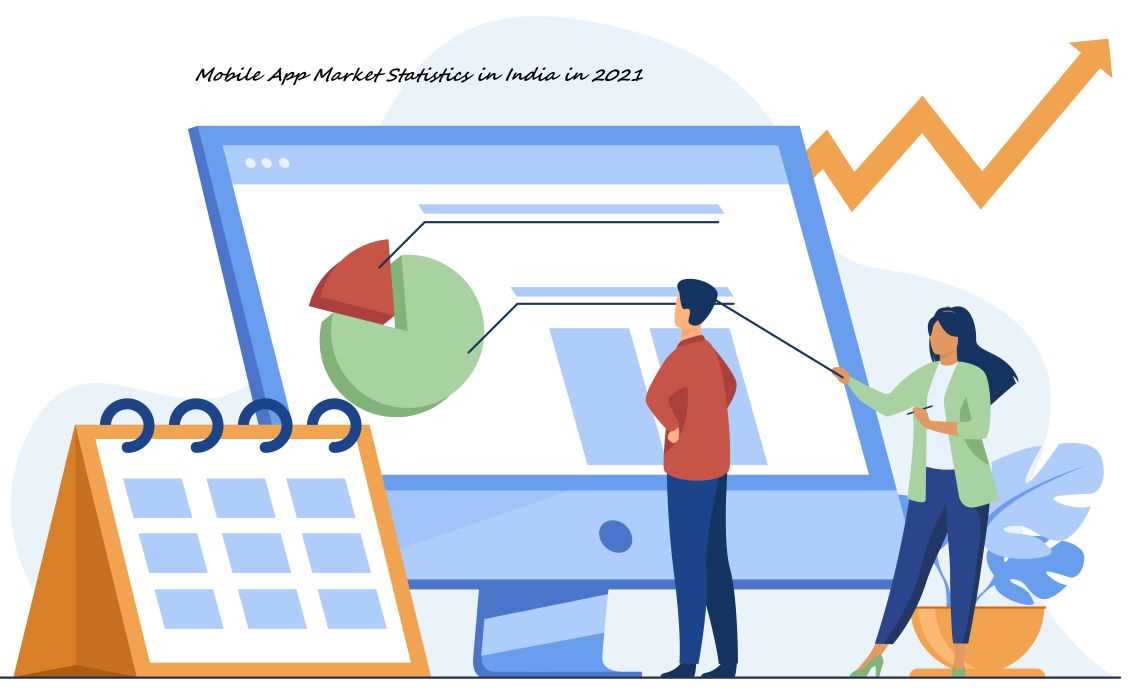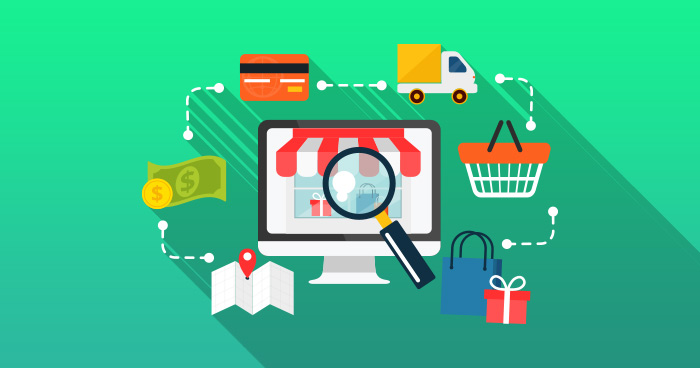Hello!
Your ecommerce marketing strategy needs to be like a superhero cape – it should make you stand out and kick butt. You want to make sure it’s designed to not only strengthen your brand, but also attract customers and increase sales.
Think about it – you’re not just selling products, you’re selling an experience. You want people to associate your brand with quality, reliability, and even a little bit of fun. And the best way to do that is to capture the attention of people who are already looking for your products.
 But you can’t just sit back and wait for customers to find you. Nope, you need to actively implement effective strategies to get people to want to find you. It’s like a game of hide-and-seek, but instead of hiding, you want to be found.
But you can’t just sit back and wait for customers to find you. Nope, you need to actively implement effective strategies to get people to want to find you. It’s like a game of hide-and-seek, but instead of hiding, you want to be found.
So put on your thinking cap and come up with some creative ways to get people to notice you. Maybe it’s through eye-catching ads or partnering with influencers who have a big following. The possibilities are endless, so don’t be afraid to think outside the box.
Remember, in the world of ecommerce, it’s survival of the fittest. So make sure your marketing strategy is designed to help you not only survive, but thrive.
What is Ecommerce Marketing?
It’s honestly way more simple than it sounds: As an ecommerce marketer, any marketing effort that you do to promote your online business and generate sales counts as ecommerce marketing.
 The primary goal of ecommerce marketing is two-fold: to attract new customers (customer acquisition) and to encourage repeat purchases from existing customers (customer retention).
The primary goal of ecommerce marketing is two-fold: to attract new customers (customer acquisition) and to encourage repeat purchases from existing customers (customer retention).
It’s imperative to recognize that launching your ecommerce site alone won’t guarantee traffic or sales.
Ecommerce marketing is a must to drive traffic to your online store, convert the traffic into paying customers, and retain the customers post-purchase.
Ecommerce marketing is instrumental for any business, because it:
- Puts your brand in front of your target audience.
- Makes it easy for people to discover your website.
- Improves the post-purchase experience of your customers, which in turn increases customer satisfaction and ultimately drives customer loyalty.
- Keeps current customers updated about ongoing or upcoming offers and other important details so that they enjoy shopping from you.
Ecommerce marketing constantly reminds your customers of your brand so that they keep coming back, thereby helping you generate revenue.
12 Effective Ecommerce Marketing Strategies to Drive Sales
A well-planned and well-executed marketing plan coupled with an informative and engaging website can be extremely effective at converting visitors into paying customers.
The goal of ecommerce marketing strategies is to drive traffic to an online store through promotional tactics that help businesses retain their customers, thereby increasing their overall customer lifetime value (CLV).
By staying up to date on the latest trends, marketers can reach new customers and retain existing ones.
Here are some ecommerce marketing strategies that can help you strengthen your brand, attract new customers, and increase sales over time.
Ecommerce Marketing Strategy #1: Build an Informative and Engaging Ecommerce Website
In today’s digital age, having an ecommerce site is essential for businesses of all sizes that sell products, especially compared to brick-and-mortar establishments.
 Here are some reasons why:
Here are some reasons why:
- Increased reach: An ecommerce site allows you to reach a global audience, which can greatly expand your customer base and increase your sales potential.
- 24/7 availability: Unlike a physical store, an ecommerce site is accessible 24/7, which means customers can shop at any time of the day or night, making it more convenient for them.
- Cost-effective: Operating an ecommerce site is generally more cost-effective than maintaining a physical store, as there is no rent, utilities, or other expenses associated with a brick-and-mortar location.
- Personalized experience: With an ecommerce site, you can tailor the shopping experience to each individual customer by offering personalized recommendations and targeted marketing messages.
- Data insights: An ecommerce site provides valuable insights into customer behavior and preferences, which can inform business decisions and marketing strategies.
The initial perception customers have of your brand’s products and services is formed by the impression they get from your website.
This presents a valuable opportunity for you to seize the attention of those who have taken the first step and landed on your website.
 To create an informative and engaging ecommerce website that resonates with your customers, it’s important to include the following key features:
To create an informative and engaging ecommerce website that resonates with your customers, it’s important to include the following key features:
- Draw your customers in with captivating and educational images, infographics and photographs. It’s worth noting that the human brain processes images more quickly than text, so attention-grabbing visuals can help showcase your product or service in a distinct way, instilling a sense of trustworthiness in your brand.
- Craft high-quality, educational content in the form of guides, ebooks, and blog posts can help establish your brand’s expertise and thought leadership. Consistently posting informative and engaging blog articles can also enhance your brand’s reputation and influence within your industry.
- In addition to providing informative content, it’s important to make your website interactive to engage potential customers. You can achieve this by incorporating online chat features, creating a forum for discussion, or implementing a FAQ section where you can promptly address common inquiries from customers. By offering these interactive features, you can foster a sense of community and establish a more personal connection with your audience.
- Ensure that your website design enables seamless navigation and an intuitive, streamlined shopping experience for your customers. By prioritizing ease-of-use and user-friendliness in your site’s design, you can enhance the overall customer experience and encourage visitors to make purchases.
- Incorporate client testimonials and reviews into your website to provide social proof of your brand’s reliability and quality. Additionally, ensure that you have clear policies in place for returns, exchanges, and refunds to demonstrate transparency and promote customer trust.
Ecommerce Marketing Strategy #2: Optimize Your Website for Search Engines
To truly thrive in ecommerce, it’s crucial to optimize your ecommerce store for search engines. By doing so, you can improve your visibility in search engine results pages (SERPs), attract more relevant traffic to your site, and ultimately increase your chances of converting visitors into paying customers.
 In this way, optimizing an ecommerce store for search engines is a crucial component of any comprehensive ecommerce marketing strategy.
In this way, optimizing an ecommerce store for search engines is a crucial component of any comprehensive ecommerce marketing strategy.
As an ecommerce business owner, it’s essential to prioritize the regular updating of your website with engaging, rich, and relevant content that provides useful information to your customers.
This is because effective search engine optimization (SEO) involves developing a strategic plan to ensure that your content appears on SERPs for relevant search terms, while also delivering a positive customer experience (CX) when customers find the information they’re looking for.
To achieve this, your marketing team should aim to use SEO keywords and phrases naturally within your content, rather than resorting to “keyword stuffing” – that is, overusing keywords to the point of being obnoxious or disruptive in a certain page. By incorporating primary keywords into easy-to-read URLs and descriptive page names, you can improve the relevance of your site for specific search queries.
Additionally, including familiar words or phrases that customers are most likely to use during their search can also enhance your SEO efforts.
It’s essential to ensure that your site and product pages are fully optimized for the specific keywords that your customers are searching for. This is because customers typically find products or services through keyword searches that either answer their query or provide valuable information about a new product.
 To improve your chances of ranking higher in search page rankings, conducting thorough keyword research is crucial.
To improve your chances of ranking higher in search page rankings, conducting thorough keyword research is crucial.
By identifying the specific search terms that your target audience is using, you can create content and product pages that are optimized to meet their needs and provide them with valuable information.
Ultimately, by prioritizing SEO in this way, you can increase your ecommerce site’s visibility, attract more qualified traffic, and improve your chances of converting visitors into paying customers.
Ecommerce Marketing Strategy #3: Embrace Content Marketing
You must have heard it before. It’s all about content, content and more content.
Content is crucial for ecommerce marketing, because it helps to attract, engage, and retain potential customers.
 Here are some reasons why content is so important for ecommerce marketing. Ecommerce content marketing:
Here are some reasons why content is so important for ecommerce marketing. Ecommerce content marketing:
- Educates customers: Content can educate customers about your products and services, including their features, benefits, and uses. This helps customers make informed buying decisions and can improve their overall satisfaction with your brand.
- Builds trust: Creating high-quality content demonstrates your expertise and authority in your niche. This can help build trust with potential customers, making them more likely to purchase from you.
- Improves search engine visibility: Content that is optimized for search engines can help improve your ecommerce site’s visibility in SERPs. This can lead to more traffic and potential sales.
- Increases engagement: Engaging and relevant content can keep potential customers on your website longer, increasing the chances that they will make a purchase. Content such as blog posts, videos, and social media posts can also encourage interaction and sharing, leading to greater reach and exposure for your brand.
- Creates a loyal following: Consistently creating valuable content can help you build a loyal following of customers who are more likely to make repeat purchases.
Ecommerce Marketing Strategy #4: Use Social Media Marketing
 In order to effectively reach and connect with consumers, brands must go where they spend the most time, and there is no better place than social media, which boasts over four billion users worldwide.
In order to effectively reach and connect with consumers, brands must go where they spend the most time, and there is no better place than social media, which boasts over four billion users worldwide.
By leveraging social media platforms, brands can cultivate authentic relationships with their followers, making social media marketing an invaluable tool for building and nurturing customer connections.
Additionally, social media can have a significant impact on brand awareness, making it an essential component of any successful marketing strategy.
To achieve success on social media, it is crucial to produce compelling posts, videos and visual content with the help of an online video editor, that drives traffic to your website and product pages.
This requires a dedicated marketing team that consistently publishes relevant, trending and informative content, responds to all comments, and provides in-depth information about your company’s products and services.
 These are the social media platforms that many marketers consider to be potentially effective depending on your business’ audience:
These are the social media platforms that many marketers consider to be potentially effective depending on your business’ audience:
- TikTok
- YouTube
- Quora
It is crucial to recognize that the effectiveness of a social media platform in promoting your product or service will depend on its relevance to your target audience.
For instance, Reddit skews heavily towards younger men while Instagram and Pinterest are targeted more towards women. LinkedIn, on the other hand, is prime territory for B2B marketing.
 When developing a social media marketing strategy, your marketing team must carefully select the platforms that are best suited for managing and distributing your content.
When developing a social media marketing strategy, your marketing team must carefully select the platforms that are best suited for managing and distributing your content.
This is because different social media platforms cater to distinct user demographics, and the content that resonates with users on one platform may not be as effective on another.
To maximize the impact of your social media efforts, your marketing team should identify which platforms your target audience is most likely to use and tailor the content and messaging to align with the specific characteristics of each channel. You should also know how to post content at strategic times.
If you are going to use Facebook, for instance, you should research the best time to post on Facebook, so that you can reach the maximum number of people and get the most engagement on your posts.
Ecommerce Marketing Strategy #5: Run an Influencer Marketing Campaign
Influencer marketing is a type of marketing that involves partnering with individuals who have a large and engaged following on social media and other digital platforms to promote your brand, products, or services.
These individuals, also known as influencers, can be bloggers, vloggers, social media personalities, celebrities, or industry experts who have established themselves as authorities in their respective fields and have a dedicated audience of followers who trust their opinions and recommendations.

The goal of influencer marketing is to leverage an influencer’s credibility and reach to promote your brand or product to their followers, who are seen as potential customers. This can be achieved through various types of content, including sponsored posts, product reviews, endorsements, and social media shoutouts.
Influencer marketing has become increasingly popular in recent years due to the growing influence of social media and the decline of traditional advertising methods. By partnering with influencers, brands can reach new audiences, increase their visibility, and build credibility and trust with their target customers.
However, it is important to choose the right influencers who align with your brand values and have an authentic connection with their followers to ensure the success of an influencer marketing campaign.
If your organization is preparing to launch a new product or promote an existing product, influencer marketing can be a valuable and advantageous approach to consider.
 By offering free products to influencers in exchange for reviews and promotions, you can not only obtain a third-party perspective on your product but also expand the reach of your brand.
By offering free products to influencers in exchange for reviews and promotions, you can not only obtain a third-party perspective on your product but also expand the reach of your brand.
This strategy can be particularly effective in generating buzz and excitement, as influencers’ followers are more likely to trust and act on their recommendations.
Influencers serve as brand ambassadors, promoting your products or services in exchange for compensation.
Depending on the influencer, this compensation may take different forms, such as direct payments, discounts, or free products. Additionally, some influencers may work on a commission basis, receiving a percentage of the sales generated by their unique codes or referral links.
Overall, influencer marketing provides a mutually beneficial partnership between brands and influencers, as brands gain access to new audiences and influencers receive compensation for their promotion efforts.
Ecommerce Marketing Strategy #6: Use Email Marketing
Despite some marketers believing that email marketing has lost its effectiveness, this couldn’t be further from the truth.
 In fact, email marketing remains a cornerstone of ecommerce marketing and can be a highly effective and invaluable tool for ecommerce brands to connect with potential customers.
In fact, email marketing remains a cornerstone of ecommerce marketing and can be a highly effective and invaluable tool for ecommerce brands to connect with potential customers.
By leveraging the targeted and personalized nature of email communication, ecommerce businesses can nurture customer relationships, promote products and services, and drive revenue growth.
So, don’t overlook the power of email marketing, as it continues to be a valuable asset for ecommerce businesses.
Here are some reasons why email marketing is important for an ecommerce marketing strategy:
- Targeted messaging: Email allows you to segment your audience based on their behaviors, preferences, and demographics, allowing you to send targeted and relevant messages that resonate with their needs and interests.
- High ROI: Email marketing has consistently demonstrated high return on investment (ROI) for ecommerce businesses. According to studies, email marketing has an average ROI of $42 for every dollar spent, making it one of the most cost-effective marketing channels.
- Customer retention: Email is a powerful tool for building and nurturing customer relationships. Regular email communication keeps your brand top of mind and can increase customer loyalty and retention rates.
- Sales and promotions: Email is an effective channel for promoting sales, discounts, and promotions. By sending exclusive offers to your email subscribers, you can incentivize them to make purchases and increase revenue.
- Analytics and insights: Email marketing platforms offer robust analytics and insights that allow you to track open rates, click-through rates, and other key performance indicators (KPIs) to measure the effectiveness of your campaigns and make data-driven decisions.
In summary, email marketing is important for ecommerce businesses because it offers targeted messaging, high ROI, customer retention, sales and promotions, and valuable analytics and insights.
Ecommerce Marketing Strategy #7: Run Pay-Per-Click (PPC) Advertising Campaigns
 Utilizing a pay-per-click (PPC) strategy for your ecommerce brand ensures that your product pages appear at the top of search engine results pages (SERPs) in the form of ads.
Utilizing a pay-per-click (PPC) strategy for your ecommerce brand ensures that your product pages appear at the top of search engine results pages (SERPs) in the form of ads.
PPC ad campaigns are data-driven and proven to offer a high return on investment if managed by an experienced team.
One significant advantage of PPC advertising for ecommerce brands is its ability to target ready-to-buy shoppers, resulting in higher sales compared to organic marketing. This is why PPC ads have emerged as a popular choice for ecommerce businesses looking to drive traffic and increase sales.
Two of the most popular and effective platforms to run PPC ads for ecommerce businesses are Facebook and Google. Google shopping ads are particularly popular for ecommerce brands, while Facebook ads run on both Facebook and Instagram.
PPC ad campaigns provide ecommerce businesses with the ability to target specific customer personas and utilize a range of ad formats to promote their products.
 Marketers can select the exact audience they want to target and the type of ad they wish to display.
Marketers can select the exact audience they want to target and the type of ad they wish to display.
These campaigns can be displayed within search engines or ad networks, allowing them to follow users to other websites they visit and increase visibility for products and offers.
This level of control and flexibility makes PPC advertising a powerful tool for ecommerce businesses looking to drive traffic and increase sales.
Ecommerce Marketing Strategy #8: Run Retargeting Ads
Retargeting ads are important for ecommerce, because they enable businesses to target users who have already interacted with their website or products but did not make a purchase.
By utilizing cookies and other tracking methods, retargeting ads display personalized and relevant ads to these users across various platforms and websites, encouraging them to return to the ecommerce site and complete their purchase.
 Retargeting ads can help ecommerce businesses to:
Retargeting ads can help ecommerce businesses to:
- Increase conversion rates: By targeting users who have already shown an interest in their products, retargeting ads can encourage them to return and complete their purchase, resulting in increased conversion rates.
- Improve brand awareness: Retargeting ads keep the brand at the forefront of the user’s mind, increasing the likelihood of them making a purchase in the future.
- Enhance ROI: Retargeting ads can be more cost-effective than other forms of advertising, since they are targeting a warm audience who is more likely to make a purchase. This can result in higher returns on investment for ecommerce businesses.
By creating audience lists based on the website pages viewed, ecommerce businesses can target users who have shown an interest in specific products.
For instance, if a user visits an ecommerce site and views several product pages, indicating an interest in those products, the business can deploy targeted ads on other websites within its ad networks.
These ads will redirect the user to the specific product pages he or she visited before, reinforcing the idea that the product is worth trying.
Facebook is preferred by many marketers for retargeting, as their display ads work very well for re-engagement campaigns.
Ecommerce Marketing Strategy #9: Send Promotional SMS Messages
 SMS marketing is a potent strategy that ecommerce businesses should consider adding to their marketing arsenal.
SMS marketing is a potent strategy that ecommerce businesses should consider adding to their marketing arsenal.
It enables brands to reach potential customers directly via text messages, which is a preferred mode of communication for many consumers.
Texting is a convenient and straightforward way for customers to interact with businesses, and since most people carry their phones with them at all times, SMS marketing can be an effective way to engage with customers.
Here are some reasons you should use SMS marketing for your ecommerce store.
- It reaches a wider audience. In spite of having access to Instant Messaging apps (IM), almost 98 percent of smartphone users use text on a regular basis. Because of this broad reach, you can reach several demographics through the same campaign, as almost everyone uses SMS.
- It has a better open rate and is more personal. SMS has a much better open rate than emails. People typically check their email during specific times of the day based on their work and schedule. Some individuals may not check their email at all on certain days. In contrast, text messages are typically read immediately upon receipt, as they have a more authentic and appealing quality, making them feel like a personal interaction with a friend.
- It is shorter and more convenient. Compared to emails, text messages are typically shorter and require less time to compose. They also minimize the need for customer service calls. Text messaging provides customers with accurate contact information automatically, unlike email or live chat, and allows customers to send a quick message at any time, with businesses responding in real-time.
- It is engaging and creates trust. SMS marketing is a powerful tool to keep your customers engaged with your brand and guide them to your ecommerce website where they are more likely to make a purchase. By sending SMS messages, you can establish a closer relationship with your customers, informing them of a sale or when an out of stock product becomes available for purchase again. This helps build a good relationship, making them more likely to make a purchase and remain loyal to your brand.
You can use SMS marketing for:
- Cross-selling and upselling
- Sales promotions
- Abandoned cart recovery
- Exclusive offers
- Customer support
- Reviews
However, be aware that a brand that’s constantly blowing up your phone can be more annoying than effective. Make sure to use SMS marketing responsibly and with plenty of downtime, lest you risk turning prospects away from your brand.
Ecommerce Marketing Strategy #10: Optimize Your Online Store for Mobile
Building your ecommerce store for mobile is essential because more and more people are using their mobile devices to shop online.
 Mobile devices offer convenience, allowing users to shop from anywhere at any time. Additionally, mobile commerce is growing rapidly, and having a mobile-friendly website can give you a competitive advantage.
Mobile devices offer convenience, allowing users to shop from anywhere at any time. Additionally, mobile commerce is growing rapidly, and having a mobile-friendly website can give you a competitive advantage.
Moreover, Google’s algorithms prioritize mobile-friendly websites and will rank them higher in search results, meaning that having a mobile-friendly website can increase your visibility and drive more traffic to your ecommerce store.
Also, a mobile-friendly website can improve the overall user experience, making it easier for customers to navigate and purchase products from your store, ultimately leading to increased sales and revenue.
Mobile optimization is the process of adapting your website content to provide a customized experience for visitors accessing it through their mobile devices.
This includes considering factors such as site design, screen sizes, and load times to ensure that your site is functional and user-friendly on smartphones and tablets. Neglecting this aspect can result in visitors quickly leaving your site.
To gain a competitive advantage, it is important to design your web pages with a mobile-first approach. By doing so, your prospective customers will experience a website that is optimized for their mobile devices, resulting in a seamless and personalized experience. This can lead to increased customer loyalty, higher retention rates, and more frequent purchases.
Here are some best practices for mobile optimization that you should implement:
- It is crucial to optimize your website for fast loading speed, especially on mobile devices, as many mobile users have lower tolerance for slow loading times. If your page takes too long to load or has unresponsive links, it may result in a higher bounce rate and loss of potential customers.
- Ensure that your website text is easily visible to users without the need for zooming or scrolling, as this can be frustrating for them.
- Ensuring clickable links is crucial when optimizing for mobile devices, as users will be using their fingers to navigate. To make this process easy, you should make sure the buttons are large enough and limit the use of drop-down menus, unless they are mobile-friendly. Additionally, ensure that links are easily distinguishable and clickable for users.

Furthermore, if you have ads on your site, ensure that they don’t load in a way that “tricks” the user into clicking on them when they were going for a menu or other link. Nothing builds dissatisfaction faster! - Before uploading images to your online store, it’s essential to optimize them by compressing their size without compromising the quality.
- Ensure a smooth customer experience when shoppers add products to their cart, navigate checkout, and make payments. The “Add To Cart” button is a crucial call to action that should be large, clear, and in contrasting colors to the rest of the page, making it easy for visitors to add items without zooming in. Optimize the checkout process to reduce the number of steps required for customers to complete their purchases.
- By optimizing product pages for mobile shoppers, you can enhance the conversion rate. The product page should be user-friendly, allowing visitors to easily view a product, gather information about its features, and make a purchase.
Ecommerce Marketing Strategy #11: Conduct Customer Loyalty Programs and Reward Loyal Customers
As an ecommerce store owner, it’s crucial to cultivate loyal customers who not only return to make additional purchases but also advocate for your brand. To increase customer lifetime value (CLV), consider offering incentives and rewards for repeat purchases.
 One effective way to do this is by implementing customer loyalty programs, which can benefit both customers and your business by increasing revenue and customer retention.
One effective way to do this is by implementing customer loyalty programs, which can benefit both customers and your business by increasing revenue and customer retention.
By offering incentives for purchases and referrals, customers are more likely to remain loyal to your brand. Referrals can also generate high-quality sales leads for your business. If implemented correctly, loyalty programs can increase the purchase rate and improve overall business performance.
Consistency and value are key factors to consider when selecting a loyalty program. Successful loyalty programs offer consumers added value and consistency in rewards.
Collecting information about customers through loyalty programs can also help you identify optimal communication times. By offering special promotions, discounts, and personalized birthday wishes, loyalty programs provide an opportunity to strengthen your relationship with your customers and increase their engagement with your brand.
Putting customers at the center of your marketing strategy is a great way to build a strong and meaningful relationship with them.
Ecommerce Marketing Strategy #12: Include Reviews on Your Product Pages
Including online consumer product reviews on your product pages can strengthen your online presence and increase the chance of converting your website visitor into paying customers. This is a type of social proof, which demonstrates that your products are being purchased – and enjoyed – by real people.
 Displaying product reviews on an ecommerce website is important for several reasons:
Displaying product reviews on an ecommerce website is important for several reasons:
- Builds trust: Product reviews are a form of social proof that shows that other people have purchased and used the product, which helps build trust with potential customers.
- Increases conversions: When customers see positive reviews from other customers, they are more likely to make a purchase.
- Provides feedback: Product reviews provide valuable feedback to the ecommerce website owner about the product, such as its quality, functionality, and any issues customers may have experienced.
- Improves SEO: User-generated content, such as product reviews, can improve the SEO of an ecommerce website, as search engines tend to favor websites with fresh, relevant content.
- Enhances customer engagement: When customers leave reviews, they are engaging with the brand and the product, which can lead to increased customer loyalty and advocacy.
Wrapping Up
 The past few years have witnessed an unprecedented surge in online shopping. The world of ecommerce has been drastically impacted by the global pandemic, leading to a significant push towards digitalization and compelling many businesses to embrace it. Without a solid ecommerce marketing strategy, your online store may struggle to make a mark.
The past few years have witnessed an unprecedented surge in online shopping. The world of ecommerce has been drastically impacted by the global pandemic, leading to a significant push towards digitalization and compelling many businesses to embrace it. Without a solid ecommerce marketing strategy, your online store may struggle to make a mark.
To surpass your competitors and establish a distinct identity in the market, it is vital to incorporate the ecommerce marketing strategies discussed in this post. These strategies can help you attract customers, generate sales, and expedite your business growth.
By adopting these tactics, you can create a thriving online store that offers an excellent customer experience and is equally satisfying and fulfilling to manage.
Thank you!
Join us on social media!
See you!






